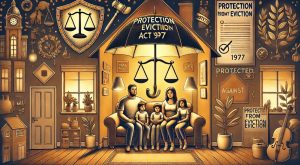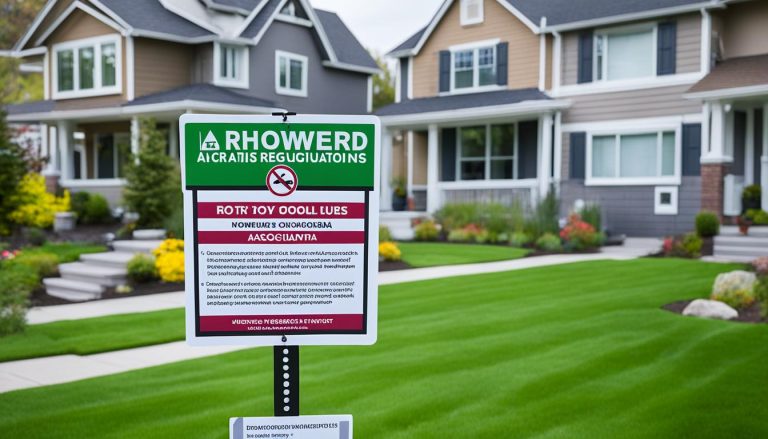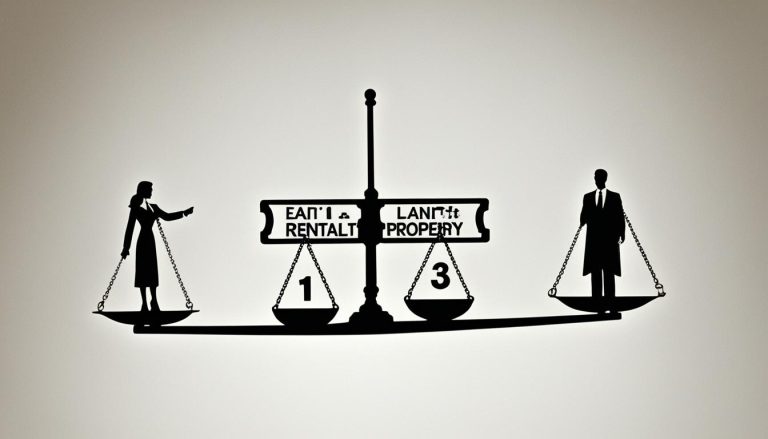The Protection from Eviction Act 1977 plays a vital role in safeguarding tenants’ rights in the UK, providing a framework for fair eviction practices and protecting tenants from unlawful eviction and harassment.
With rising concerns over rental security and landlord-tenant disputes, this Act ensures that both landlords and tenants understand their rights and obligations.
This guide delves into the core protections within the Act, offering tenants insight into their rights, outlining the legal eviction process, and highlighting actionable remedies if they encounter harassment or an unlawful eviction.
Understanding the Protection from Eviction Act 1977

The Protection from Eviction Act 1977 was established to address cases where landlords attempted to remove tenants without following proper legal procedures. This Act recognizes the home as a fundamental space that should be protected by law, shielding tenants from sudden displacement and granting them rights that preserve their security and peace of mind.
Under the Act:
- Evictions must follow legal procedures: A tenant cannot simply be removed at a landlord’s discretion; eviction requires legal grounds and specific protocols.
- Harassment is prohibited: The Act defines harassment as any behaviour by a landlord that disturbs the tenant’s right to a peaceful life in their rented space, and it sets legal recourse if harassment occurs.
- Occupier rights: Even those who are not strictly tenants, such as licensees or lodgers, are covered by some protections under this Act, ensuring a broad scope for housing security.
The Act aims to create a balance, ensuring landlords follow legal protocols while protecting tenants from unnecessary distress.
Key Rights for Tenants under the Act
Right to Due Notice Before Eviction

One of the key elements of the Protection from Eviction Act 1977 is the requirement that landlords provide tenants with a fair notice period before eviction. There are two main types of notices:
- Section 21 Notice: This no-fault notice allows landlords to repossess their property without providing a reason, typically at the end of a fixed-term tenancy. However, a minimum of two months’ notice is required, and specific conditions, such as compliance with deposit protection rules, must be met.
- Section 8 Notice: This notice is used when a tenant has breached the tenancy agreement terms, such as by failing to pay rent. It must cite one or more grounds for eviction as specified in the Housing Act 1988 and allows tenants an opportunity to remedy the breach where possible.
These requirements ensure that tenants are not blindsided by eviction and have time to make necessary preparations.
Security of Tenure and Occupier Rights
The security of tenure provided by the Act is a significant protection for tenants, particularly those with an assured or protected tenancy. Security of tenure means that tenants can remain in their rental home without fear of eviction as long as they adhere to the terms of the tenancy agreement, including timely rent payments.
Additionally, occupier rights extend protections even to those who may not have formal tenancy agreements, such as licensees and lodgers. This means they cannot be arbitrarily evicted without following specific legal procedures.
Right to Peaceful Enjoyment
The Act also guarantees the right to peaceful enjoyment, protecting tenants from disruptions and ensuring they can use their home as a safe, stable space. This right prohibits landlords from actions such as:
- Entering the property without permission
- Shutting off utilities to force the tenant out
- Sending threats or taking other forms of intimidating actions
Landlords who violate this right risk legal consequences, including tenant compensation claims.
Legal Process for Eviction in the UK

Landlord Obligations and Legal Grounds for Eviction
For an eviction to be lawful, landlords must establish that specific legal grounds exist. Legitimate grounds may include consistent late rent payments, property damage, or significant breach of tenancy terms. When issuing a notice, landlords must cite the grounds in clear terms to give tenants an understanding of the reason for the eviction. This clarity allows tenants to challenge the eviction in court if they believe it to be unjust.
Court Orders and Bailiff Evictions
If the tenant does not leave following the notice period, the landlord must apply for a court order for eviction. Once granted, only certified bailiffs have the authority to carry out the physical eviction, ensuring that the process is conducted professionally and in a way that minimizes distress for the tenant. The presence of bailiffs is meant to enforce the eviction peacefully and legally.
Eviction Notice Requirements
Different types of notices require specific criteria:
- Section 21 notices require at least two months’ notice and can only be issued if the tenancy is an assured shorthold tenancy.
- Section 8 notices require varying notice periods based on the grounds cited, which can range from two weeks to two months. Grounds typically relate to issues like rent arrears or other breaches of the tenancy.
These detailed notice requirements provide tenants with a clear timeline and a chance to resolve any issues that may have led to the eviction notice.
Remedies Available to Tenants Facing Unlawful Eviction

Tenant’s Rights to Compensation
If tenants experience unlawful eviction, they can pursue compensation through the courts. Damages awarded often cover the cost of alternative accommodation, compensation for lost belongings, and distress. These awards emphasize that tenants have the right to challenge unfair treatment and that landlords will face penalties if they sidestep the law.
Legal Support for Tenants
Legal assistance is available for tenants who believe they are being unlawfully evicted. Several UK organizations provide free or low-cost legal advice, including Citizen’s Advice and tenant-focused charities. Legal aid may also be available, especially in cases involving vulnerable tenants.
Steps Tenants Should Take if Facing Harassment or Unlawful Eviction

Documenting Landlord Harassment
Keeping accurate records of any harassment or disturbances from the landlord is crucial. Tenants should document interactions with their landlord, including texts, emails, or incidents where the landlord entered the property without permission. This evidence can substantiate their case if they decide to seek an injunction or file a claim in court.
Reporting to Local Authorities
Local councils can play an instrumental role in assisting tenants facing harassment. Councils can investigate and, if necessary, issue warnings or legal actions against the landlord. Reporting such issues can be an effective way to de-escalate conflicts while holding the landlord accountable.
Seeking Court Intervention
Tenants can request a court injunction to prevent further harassment or unlawful eviction attempts. If a landlord’s actions are severe, courts can issue orders that bar the landlord from entering the property or making any form of contact with the tenant. This legally binding restriction helps ensure tenants can live in peace without fear of further harassment.
Conclusion
The Protection from Eviction Act 1977 serves as a foundational law for tenant security in the UK, providing a balanced approach to eviction that respects both tenant rights and landlord responsibilities. By understanding these rights, tenants can feel empowered to take appropriate action when necessary. For those unsure about their situation, seeking legal guidance can help clarify their options and offer peace of mind.
FAQs about Tenant Rights and the Protection from Eviction Act 1977
What should I do if my landlord tries to evict me without notice?
If your landlord is attempting to evict you without due notice, consult a legal advisor or tenant advocacy group immediately. They can inform you of your rights and help you navigate the appropriate steps, which may include filing a formal complaint or pursuing a court order.
Can my landlord evict me for reporting issues with the property?
Landlords are prohibited from retaliating against tenants who report legitimate issues, such as repairs or maintenance problems. Eviction for reporting a concern would be grounds for a challenge in court.
How long does the legal eviction process take?
The eviction timeline varies based on notice periods and court schedules. On average, it can take several months to complete the entire legal process, especially if there are disputes or a need for court intervention.
What role do bailiffs play in the eviction process?
Bailiffs are officially authorized to enforce eviction court orders. Only a bailiff can legally remove a tenant following a court ruling, ensuring the eviction is conducted lawfully.
Does the Protection from Eviction Act cover all rental agreements?
While most tenancies are covered, certain situations—such as short-term holiday lets or lodger agreements—may be exempt. Always clarify your tenancy type with a legal advisor to understand your rights.
What constitutes landlord harassment under the Act?
Actions like threatening behaviour, changing locks, shutting off utilities, or refusing necessary repairs may qualify as harassment. Legal resources are available to assist tenants experiencing these issues.
Can I claim compensation for an unlawful eviction?
Yes, compensation is often available if you have been unlawfully evicted. This compensation can cover losses, alternative housing expenses, and damages for distress.






